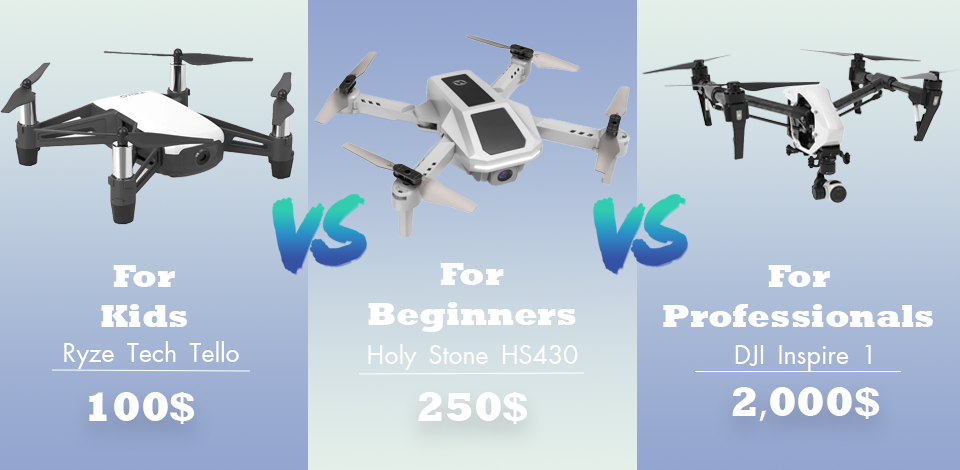
The question of “What to know before buying a drone?" is bugging a lot of people since the market is full of options that range from basic models for $120 to pro-grade videography and racing drones that can send you back about $2,500.
There are multiple factors you have to account for including the available design and functionality possibilities as well as the manufacturer behind each product.
Things to consider when making your choice:
Drone types
Transmitter range
Flying time
Camera quality
Live feed
Material & spare parts
Advanced features
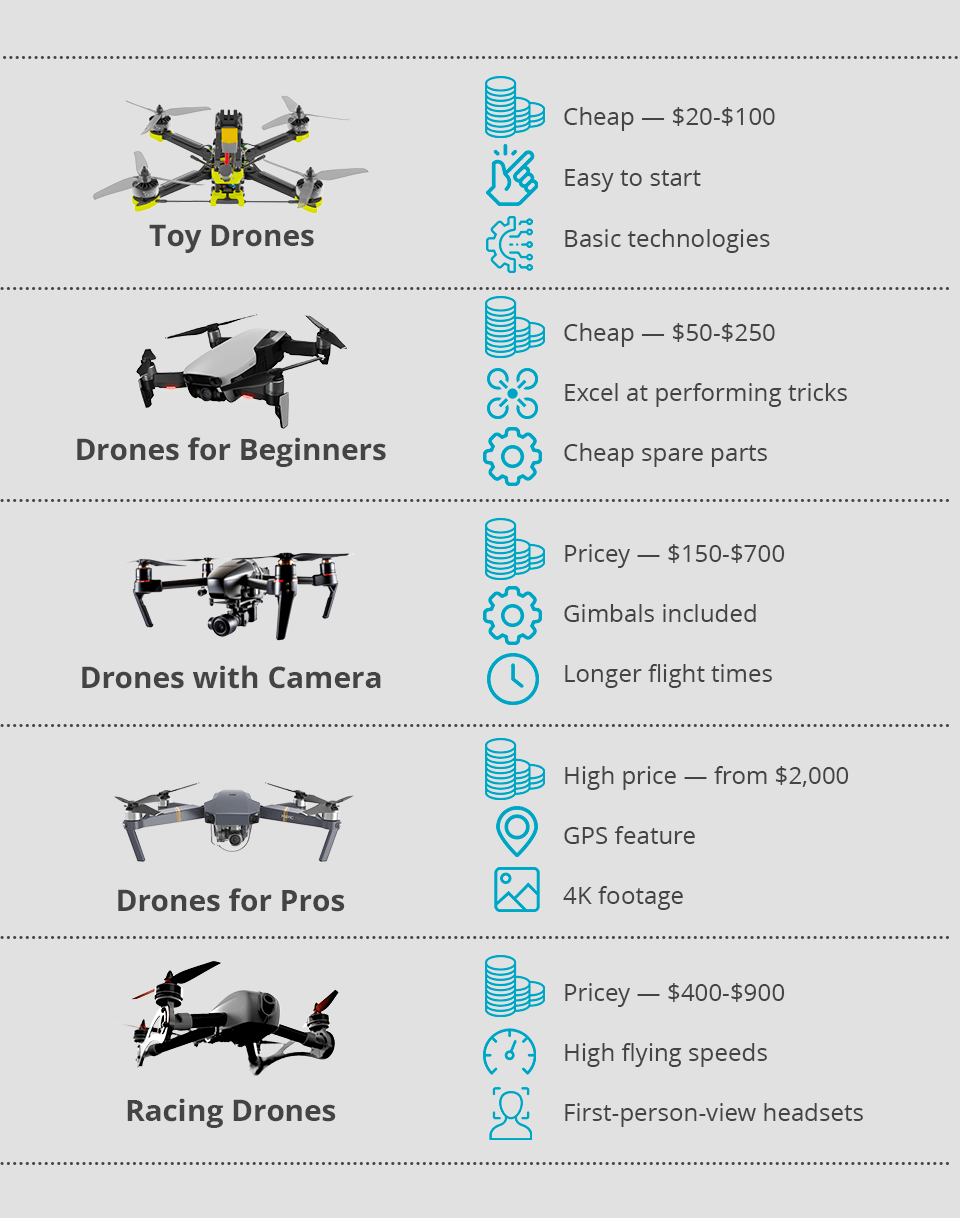
The first thing this drone buying guide will cover is the available drone types. Some models are capable of incredible midair maneuvers while a specialized drones with camera can be a terrific fit for aerial photography and videography.
Meanwhile, other users are interested in FPV (first-person view) drones that can be used for racing. Figure out what you plan to use the drone for and pick an appropriate category to narrow down your search.
If you want a drone for beginners, then the ready-to-fly models should be right up your alley. They are pleasantly intuitive and come with everything you need to immediately start piloting them.
More advanced users choose drones that don’t have a transmitter (BNF or bind-and-fly) or without a receiver (plug-and-play). Such components have to be purchased separately, or you can use a transmitter or receiver you have on hand.

The cheapest options on the market are usually drones for kids, like the DJI Tello. Such basic, cheap drones cost between $20 and $120 while being better suited for having fun rather than doing anything serious. You can control such a device using a phone app or a dedicated remote controller.
Toy drones are equipped with basic tech, but the functionality of some models might surprise you, as select products even come with advanced features like collision avoidance or tilting cameras.
| Ryze Tech Tello | Holy Stone HS210 | Holy Stone HS190 | |
|---|---|---|---|
|
Camera Resolution |
5MP |
❌ |
❌ |
|
Video Quality |
HD720 |
❌ |
❌ |
|
Max Range |
328ft |
164ft |
164ft |
|
Flying Time |
13 minutes |
21 minutes |
7 minutes |
|
Features |
|
|
|
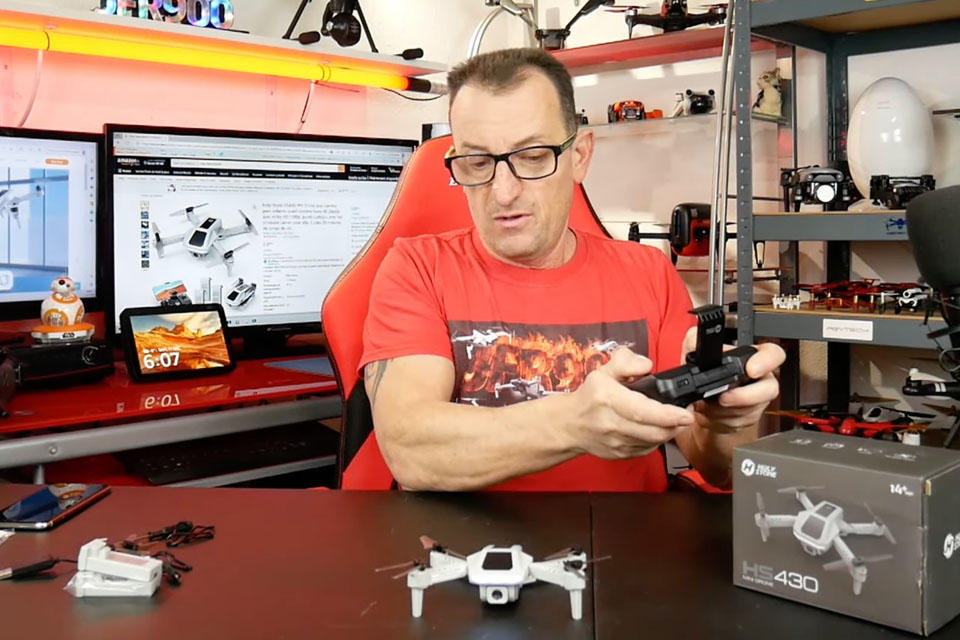
If you want to know what to look for in a drone for a more serious reason than just aimlessly flying around, then check out the available basic drones for beginners. They cost between $50 and $250 but have a rather small flight duration (usually below 10 minutes) or even lower than that if you get one of the cheapest options.
While the small flight duration is a serious drawback, beginner drones try to make up for it by being great at handling aerial tricks. Due to their lower prices, such drones are also better suited for rough treatment since buying and replacing parts here is much less of a hassle than with premium models.
Some compact models are also supplied with video cameras, but the picture quality they provide is rather subpar. Another reason why you might want to get a beginner drone is to learn all the basics of operating such a device before moving on to a more advanced model. If you start with an expensive drone, having it crash and break during the first flight will feel a lot more painful.
| Holy Stone HS430 | Potensic ATOM SE | Bwine F7MINI | |
|---|---|---|---|
|
Camera Resolution |
❌ |
12MP |
❌ |
|
Video Quality |
1080p |
4K, 30fps |
4K |
|
Max Range |
131ft |
13,123ft |
1640ft |
|
Flying Time |
13 minutes |
31 minutes |
60 minutes |
|
Features |
|
|
|
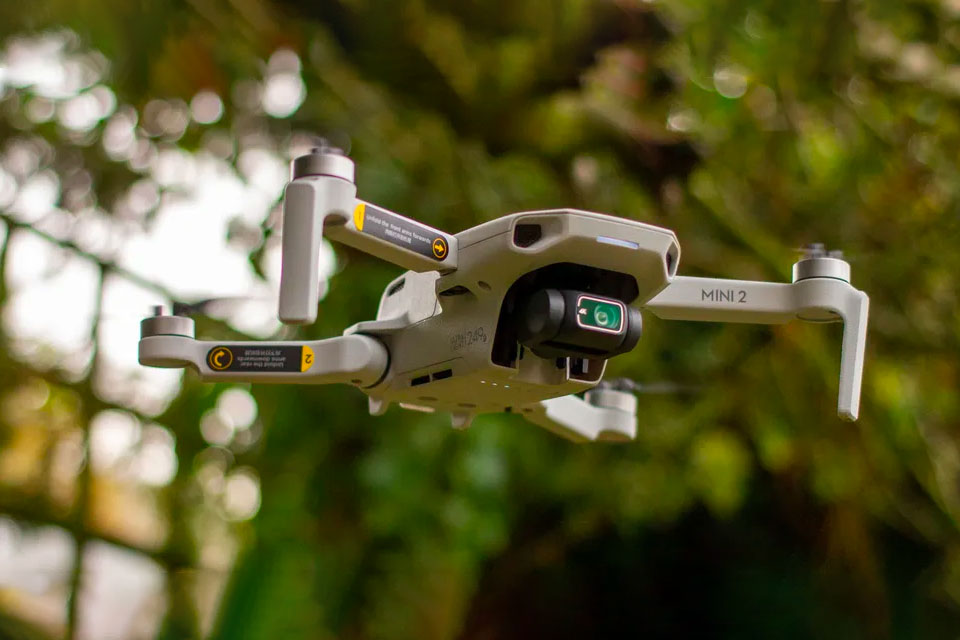
Drones with camera are made for photography and videography and you can expect to pay between $150 and $700 or even more to get one. Additionally, such drones are developed to offer a steady platform for supporting the camera lens.
Video drones are frequently equipped with gimbals, a mechanism used for panning and tilting the camera as well as protecting it from the device’s vibrations that would make the image shaky otherwise.
The video quality provided by this drone type can vary greatly, from the solid 720p offered by the HS200 to the terrific 4K resolution provided by the DJI Mini 3.
If you want to know how to buy a drone with longer flight durations, you should usually give preference to models with larger batteries. A full charge is usually enough for about 20 minutes of flying and you can also easily replace the batteries to prolong the flight.
Similar to toy models, camera drones are well-suited for repairs and you shouldn’t have any trouble finding the necessary parts for a reasonable price. For instance, the DJI Mini 2 offers several replacement parts, the cost of which ranges from $15 to $30.
| DJI Mini 2 | Holy Stone HS720E | Contixo F22 | |||
|---|---|---|---|---|---|
|
Camera Resolution |
12MP |
❌ |
4K Still Image |
|
|
|
Video Quality |
1080p, 2.7K |
4K |
2K |
|
|
|
Range |
32,808ft |
3278ft |
750ft |
|
|
|
Flying Time |
31 minutes |
23 minutes |
20 minutes |
|
|
|
Features |
|
|
|
|
|
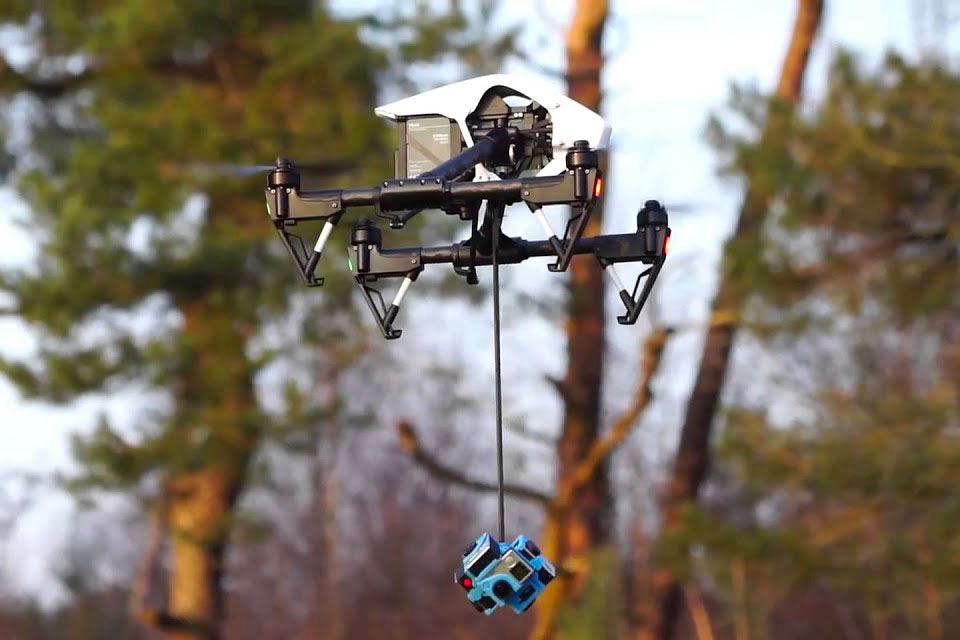
Aimed at professional photographers, videographers, and location assessors, these models offer innovative functionality and the best image quality even at extreme heights and in difficult conditions. The prices for such drones start at $2,000.
Thanks to functionality like GPS-assisted navigation and controllers that offer accurate and fluid movement, flying such a drone is a pure pleasure. Meanwhile, swappable gimbals, cameras, and lenses allow you to create the perfect gear setup for your needs.
This category covers the most expensive drones on the market, and these models are also known for their increased battery life that allows you to stay in the air longer. Pro-grade drones support the highest resolutions available, providing 4K support and more.
| DJI Inspire 1 | DJI Mavic 2 PRO | Typhoon H Pro | |||
|---|---|---|---|---|---|
|
Camera Resolution |
12MP |
20MP |
20MP |
|
|
|
Video Quality |
4K |
1080p |
4K |
|
|
|
Range |
3.1 miles |
11 miles |
1 mile |
|
|
|
Flying Time |
18 minutes |
31 minutes |
30 minutes |
|
|
|
Features |
|
|
|
|
|
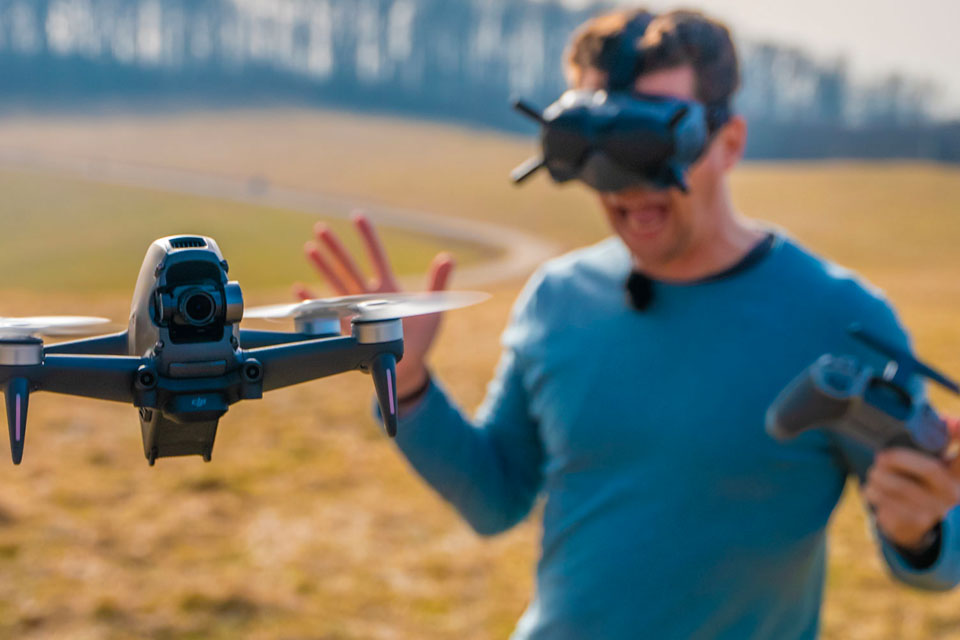
Designed for speed, such models can go as fast as 80mph. You can control the drone by viewing its footage using an FPV headset while flying through the course and trying to outmaneuver the competition. You can purchase such a drone for $400-$900.
One of the biggest benefits of buying a drone for racing is its incredible agility which makes it perfect for shooting around corners. When flying at such speeds, the device has to be impeccably responsive to ensure you remain in control at all times.
| DJI FPV | ARRIS X220 | Walkera F210 | |
|---|---|---|---|
|
Camera Resolution |
12MP |
❌ |
❌ |
|
Video Quality |
4K FHD |
1080p |
1080p |
|
Range |
6 miles |
1.2 miles |
0.5 miles |
|
Flying Time |
20 minutes |
12 minutes |
12 minutes |
|
Features |
|
|
|
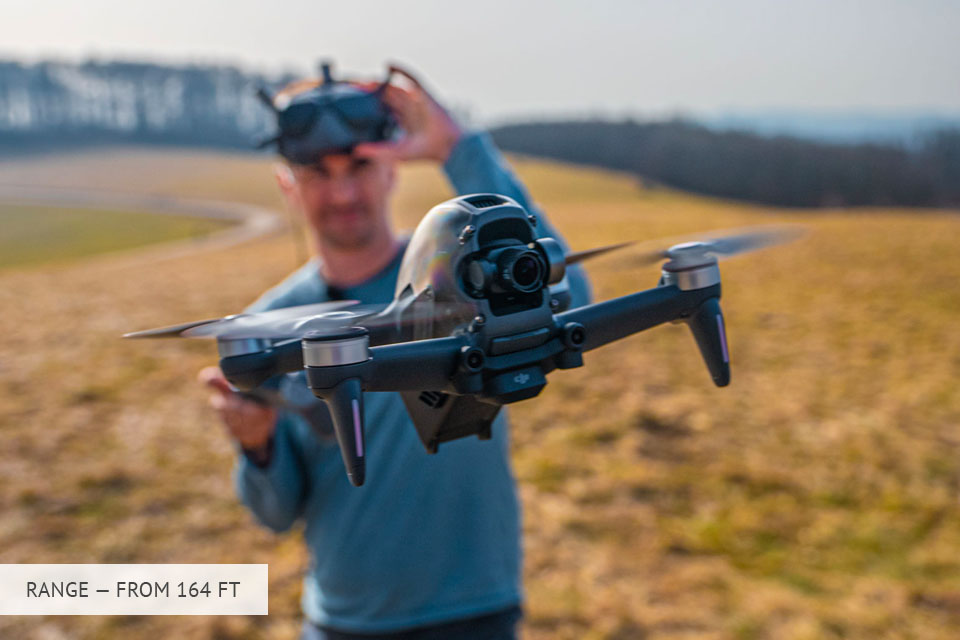
Typically, the longer the distance a drone can cover from the transmitter, the better. Budget drones under $200 may offer a range of just 30 meters, while premium models can fly for miles without you losing control.
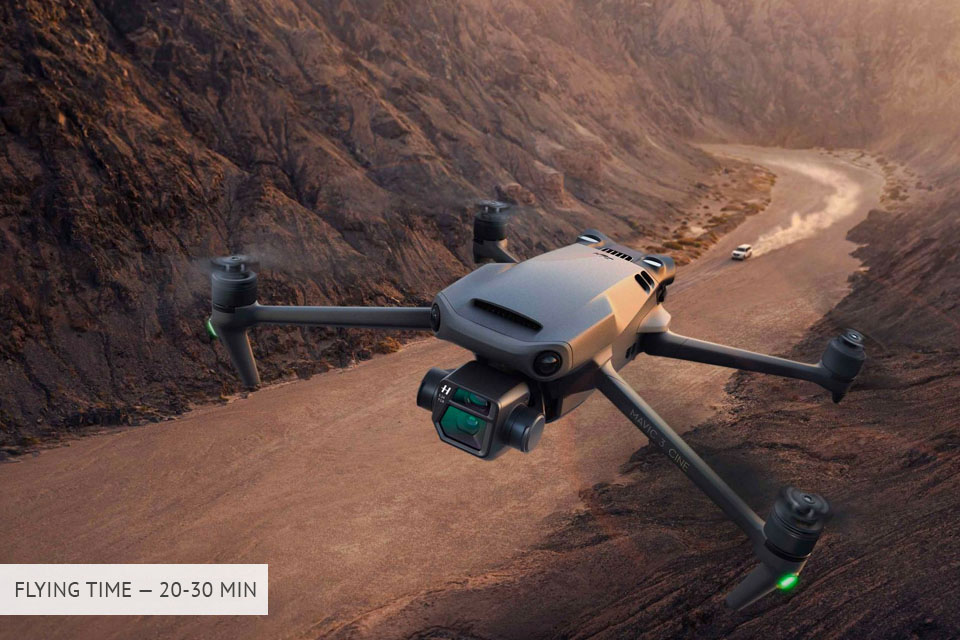
One of the things to know before buying a drone is that its flight duration is usually determined by the available battery life. Most models can fly for about 20 to 40 minutes, while the more budget-friendly options can sometimes last as little as 5 minutes. While the price of a drone is always a concern, you should still prioritize getting a model that can cover your flying needs and has a good enough battery.
Regardless of how long the offered flight duration is, you need to also buy some spare batteries and ensure they are packed and charged whenever you go out with your drone. Keep in mind that it’s recommended to let the device rest for about 10 minutes before inserting the spare battery and taking flight again to prevent overheating.
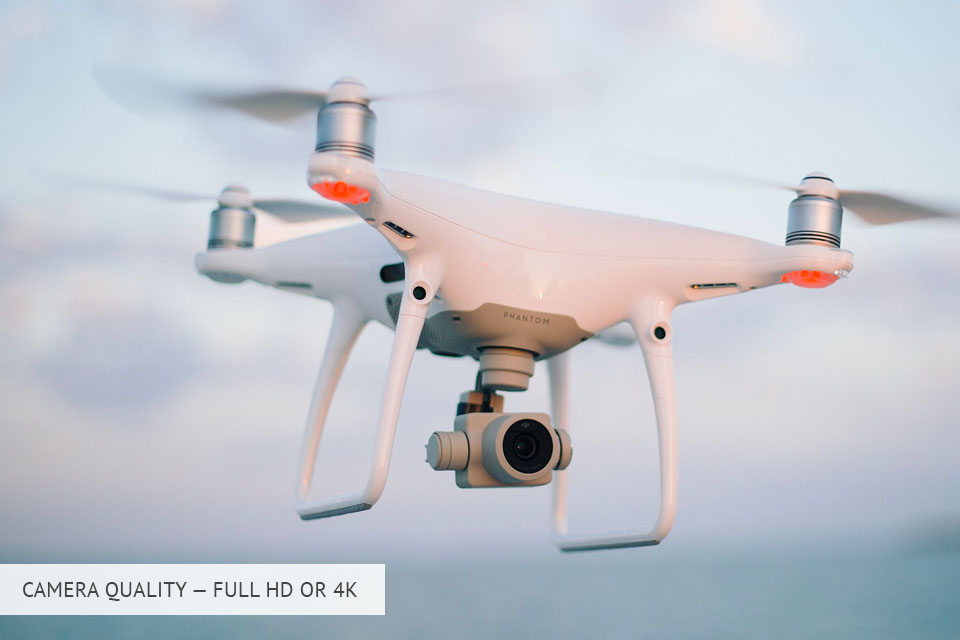
The majority of drones are either equipped with a dedicated camera or allow you to attach an external one. A premium-grade drone for GoPro supports 4K resolution filming and can be used with HERO7, HERO6, Fusion, or any other flagship model.
If the model you want to get has a camera, there are several other aspects you need to think about. Examine the camera’s characteristics while focusing on the shutter speed, framerate, aperture, and image stabilization.
For starters, any model that has a resolution of 4MP or more will offer good image and video quality. If you want to receive professional results, consider picking a 4K drone or a model with a resolution of up to 2.7K to enjoy cinema-grade quality.
Meanwhile, Full-HD 1080p resolution is perfect for casual use and recording holiday videos.
The recorded videos need to be smooth and not suffer from camera shake. Cameras with image stabilization or a gimbal raise the price of the drone, but the increase in quality you get more than makes up for it.
If you want to find out what to know before buying a drone with an integrated camera, prioritize models that broadcast the live feed to the display built into the transmitter or a phone/tablet. The same goes for drones equipped with a camera mount, as you need to use a camera that allows broadcasting a live feed.
Cheap drones are ordinarily made of plastic. Even though that makes them more budget-friendly and lightweight, their durability suffers a lot. Meanwhile, fiberglass and carbon fiber models are far more durable, but they cost significantly more.
The more popular a specific model or brand, the easier it will be to find spare parts for it. The most commonly needed components include landing gear, propellers, batteries, motors, and controllers.
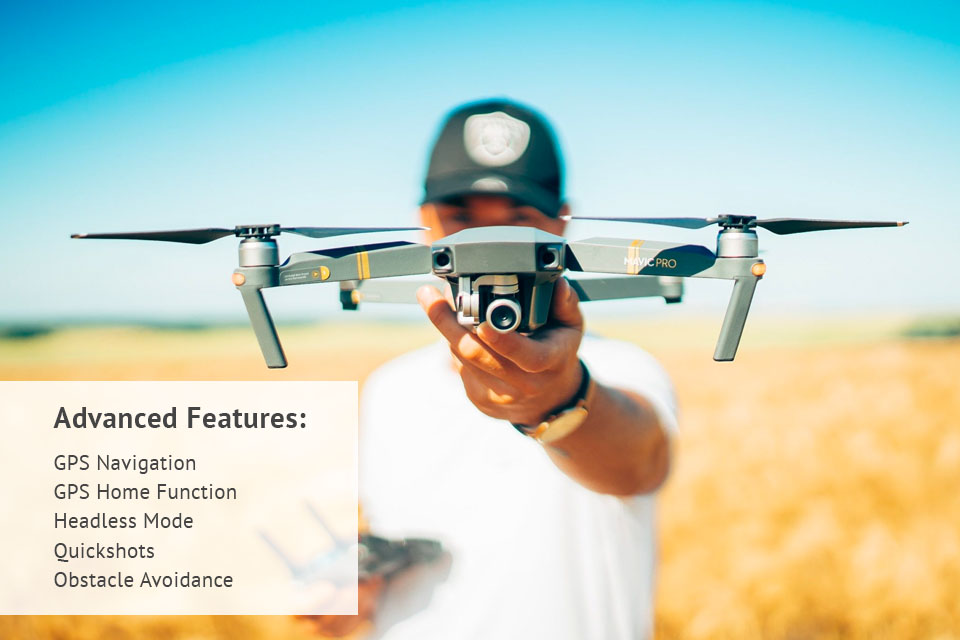
The extra sensors and advanced features included in premium drones make them more maneuverable and simpler to control. That’s a good example of a higher-priced drone being a better fit for a beginner.
The most beneficial features are:
GPS navigation. Helps enable the drone to navigate its surroundings. Some drones can even follow user-determined routes without having to be manually controlled. This is particularly useful when you need to take pictures of a specific location for several days.
GPS home function. This feature records the take-off point and guarantees the drone will return to it should it suffer from any problems. It guarantees your high-priced drone won’t just fly off into nowhere after encountering a technical issue.
Headless mode. This feature allows you to not get confused by the controls, especially during turns. Instead of having to decide if you should press the left or right movement button, the Headless mode allows you to set a specific direction for the drone to follow. As such, regardless of which direction your drone is facing, steering it left will always refer to your left and the same goes for steering right.
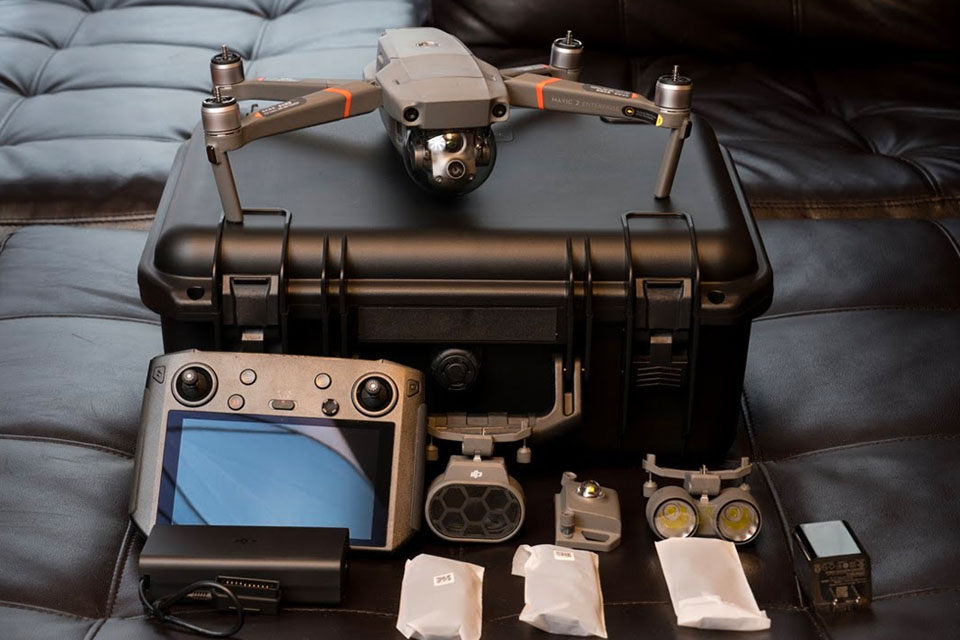
Spare batteries. A full drone battery charge can last between 5 and 30 minutes of flight time, but it takes about an hour or even more to recharge it. Thankfully, most models allow you to swap out the batteries when you see the charge level getting too low.
Camera filters. For photography drones, it’s a good idea to get a variety of lens filters that will allow you to change the saturation, minimize glare, and make other adjustments.
Computer or laptop that is powerful enough to handle image or video editing. There are fantastic tutorials on YouTube and other sites, depending on what you want to learn. I recommend starting with either Adobe Premiere Pro or Davinci Resolve for video editing.
Drone spare parts. The most fragile components like the propellers don’t cost a lot of money and are easy to replace. New models frequently come with spare propellers in the package, and you can get even more parts separately whenever needed. Keep in mind that a drone requires propellers that spin both clockwise and counterclockwise so stock up on both types.
Based on your needs, you might also need other accessories like LED bands, propeller guards, or additional landing gear. Purchasing a durable drone backpack or a case that was made for transporting drones is also a good idea. You can frequently stumble upon drone bundles that include several of the aforementioned accessories.
When buying a drone from a famous manufacturer, you can order it from the official website.
Some of the leading drone manufacturers include:
DJI. Their drones are represented by the extremely popular Mavic and Mini product lines that offer cutting-edge functionality like tri-directional obstacle detection and the Advanced Pilot Assistance System (APAS) that helps identify and avoid obstacles during flight. That said, the expensive nature of DJI drones makes them a better fit for enthusiasts and advanced users who are used to piloting such devices.
Holy Stone. They provide their products for a significantly lower price than DJI. The typical Holy Stone model is bulkier and inferior when it comes to parameters like flight duration, maximum height, and distance.
That said, this brand also sells selfie drones that come with gesture recognition, personalized flight path mapping, and automated engine shut-off in case of collisions. It’s a solid option for anyone wondering “Should I buy a drone?” because they’ve never owned one before. The HS200 is a particularly good model since it's small, can be used indoors and outdoors, and is pleasantly cheap.
The main benefit of purchasing a drone on the manufacturer’s website is that it won’t be outdated by the time it arrives. Besides, if you get it from DJI's site, you can opt-in for accidental damage protection and DJI Care when checking out.
If you’re interested in a drone from a different brand, then your best bet is Amazon. This platform offers a huge collection of diverse options and it also has a generous return policy, meaning you won’t have trouble replacing your drone should you be unhappy with your purchase.
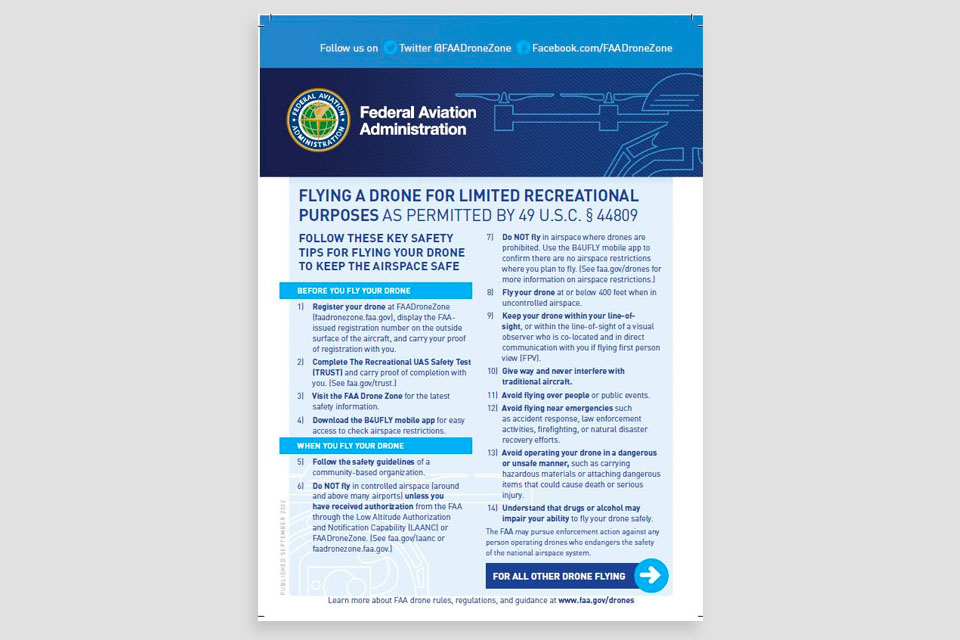
All drones that weigh over 0.55lbs have to be registered with the FAA and the received number has to be added to the drone. If your model weighs over 55 lbs, there are even more rules you have to follow, but such drones aren’t meant for the everyday user anyway.
You’ll have to pay $5 to register each drone and the license is valid for 3 years, meaning it’s not a huge expense. It’s important to remember that the regulations are stricter if you want to use a drone for commercial purposes. Flying for fun requires only registration, but in all other cases, you’ll need to take a test on the FAA website and get drone insurance.
After you’ve sorted all the legal matters, there are a couple of rules you need to follow:
Getting into a crash is a highly probable risk, particularly if you’re a new pilot who has just learned how to choose a drone, let alone fly it. You can reduce the risk of dealing significant damage to your gear by being attentive at all times when your drone is in the air.
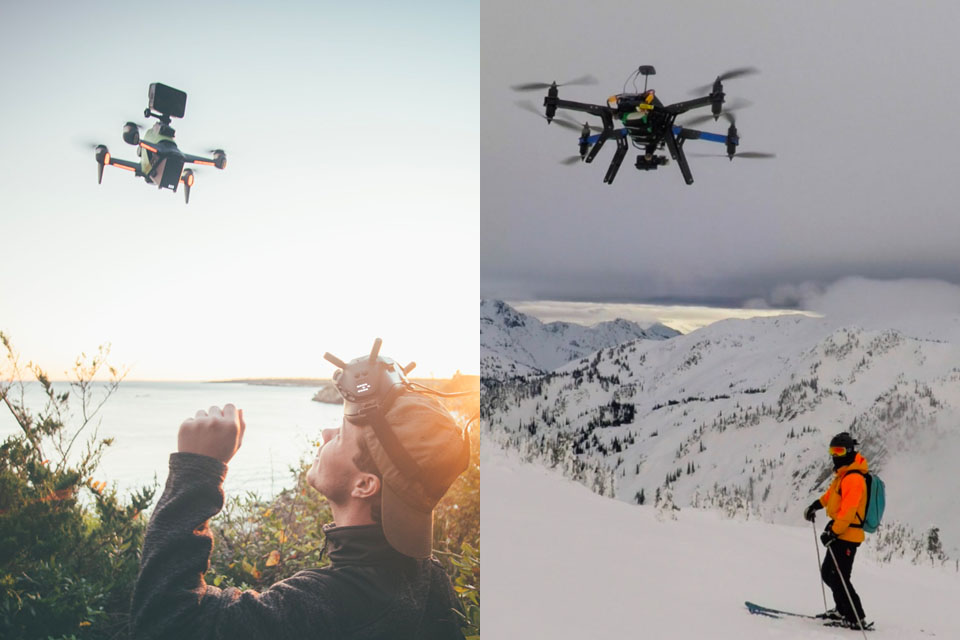
Give preference to favorable weather conditions. Sunny, clear days are best suited for drone sessions. Since most drones are very lightweight, they tend to be affected by strong winds. As such, it’s recommended to avoid using compact drones if the wind is faster than 10mph, and even bulkier models shouldn’t take flight when the wind is more than 20mph.
Don’t use your drone at night. Even if a model is equipped with lights that allow you to see better, you might still fail to notice various obstacles like tree branches or power lines.
Make sure your flight path is clear of any obstacles and know your backup plan. Crashing into power lines or buildings isn’t only dangerous, but it’s expensive when you have to replace your drone and someone else’s property. Take an extra few moments to plan out your flight, so you stay safe and maximize your battery for getting the shots that you want.
By Oliver McClintock
Oliver McClintock is a passionate drone guy who loves hanging out with his uber-cool drones. He is a tech geek by blood and always likes to fiddle around with remote control products. His love for quadcopters is everlasting, and to help spread that love he created a drone blog. It has everything you need to know about drones including reviews, buyer guides, news, and resources all under one roof.